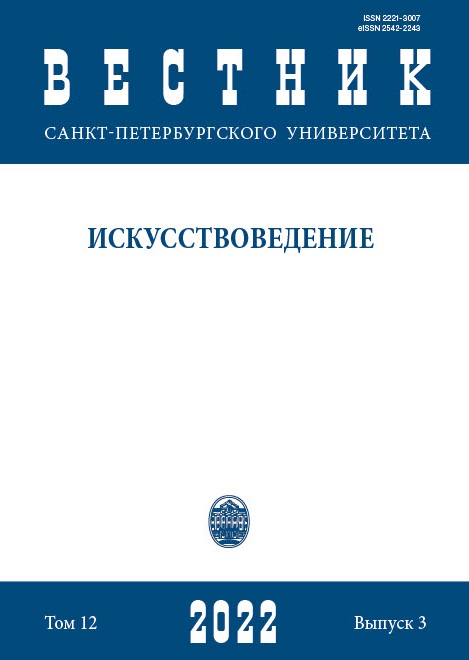Nukha’s Theatrical Life in the 30s–40s of the 20th Century (Challenges, Progress, Problems)
DOI:
https://doi.org/10.21638/spbu15.2022.303Abstract
The theatre in Nukha was founded by the amateur theatre troupe who staged the comedy “Haji Kara” by Mirza Fatali Akhundzade, a prominent playwright of the Azerbaijani literature in the 19th century. The path opened by the theatre amateurs was later expanded, and it led to getting a state status of the Nukha Theatre in 1936. The path of the Nukha Theatre had not been smooth enough, and as it is mentioned in the article, the Nukha Theatre had to be closed in 1949 due to a lack of financial support by the government and a lack of actors. In the 70s of the 20th century, the theatre life in Nukha was revived by a group of students of the Azerbaijan Institute of Culture and Arts sent to Sheki to work, and the theatre stepped to its new successful stage of its history. The activity of the Nukha Theatre in the 30s–40s was out of research and became a history in archive documents till the writing of this article. Indeed, limited information about the development of the Nukha Theatre was given by theatre researchers in the direction of research of the Azerbaijani Theatre, but the path of development of theatre had not been studied in the specific direction. This article is a part of the first step in this direction. The topicality of the article is a systematic and historical — chronological study of the Nukha Theatre, which was the integral part of the Azerbaijani Theatre in the 30s–40s of the 20th century, for the first time in a wide range. The scientific novelty of the topic is related to introducing the path of development of the Nukha Theatre in the 30s–40s of the 20th century to readers broadly.
Keywords:
theatre troupe, actor, Nukha Theatre, spectacle, director, honored artist, repertoire, drama
Downloads
References
Downloads
Published
How to Cite
Issue
Section
License
Articles of "Vestnik of Saint Petersburg University. Arts" are open access distributed under the terms of the License Agreement with Saint Petersburg State University, which permits to the authors unrestricted distribution and self-archiving free of charge.






